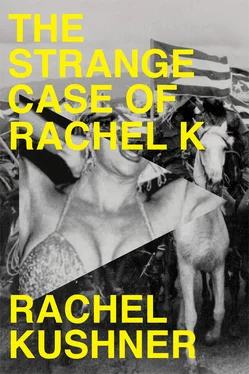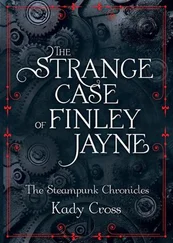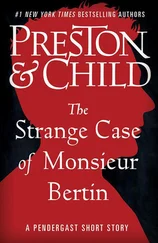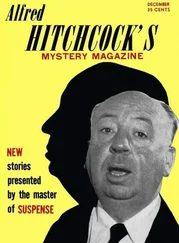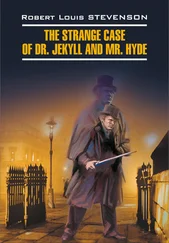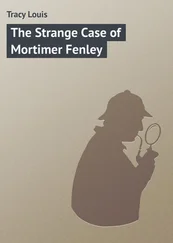Prio chose chocolate chip and she guava, a fruit that tasted deliciously unnatural. More like perfume than something you were supposed to eat. They were strolling and licking and window-shopping along La Rampa, Rachel K laughing at Prio, who looked unpresidential, she said, with ice cream in his mustache. A member of his dark-suited security team, who normally walked a few paces behind, approached and tapped Prio’s shoulder. The man leaned in and whispered something. Prio, still with ice cream frosting the tines of his mustache, blanched. He turned to Rachel K. “I must leave you now,” he said in a shaky voice. “Lelo here will take you back to the club.”
That night of strolling and licking on La Rampa was Prio’s last night as president. With the military’s cooperation, an army general named Batista staged a coup. “Easy as ordering a birthday cake from Schrafft’s,” Rachel K heard an American at the Tokio remark. One moment, Prio was on La Rampa, laughing and window-shopping, while his wife and children slept in their cream-colored sleigh beds. And then suddenly he and his family were huddling in the piss elegance of the Dominican embassy, booking airline tickets out. Batista had telephoned from Miami, promising to buy all the army officers new uniforms, and in return they gave undying loyalty. Surrounded the palace with tanks. People talked about the coup as the end of so-called democracy. Until later in the week, when the American ambassador endorsed the new government, celebrating Batista as business-friendly and a hallmark of a new era in Cuban-American relations. Prio settled in Miami and pursued a career as a stage actor. He might have been relieved, as Rachel K suspected, to have the presidency stolen from him and to pursue his long-held dream of becoming a stage actor. She herself didn’t care about politics. Though on a personal level she preferred Prio to the new president, a greedy man who knew how to manipulate people but never had anything interesting to say.
De la Mazière was at his table in the back, watching the bartender with the face in a minor key play canasta with a dancer. The bartender won, but his face remained dolorous, as if winning were a burden, one more sad duty to perform. This was a few days after the coup. De la Mazière wondered about Rachel K, who she’d visit with now that Prio had fled the island. His pick would not have been a small-time gangster-leftist and his younger brother. These two entered the club and waited by the bar, awkwardly, as if they’d never been inside a place like the Tokio. Rachel K led the gangster and his brother to a booth in the back of the room. This gangster was increasingly well known. An instant enemy of the new State, he’d fired his gun on the plaza of the university in protest of the coup. The police had fired back, and then Batista shut the campus down. The younger brother had his notoriety as well, if in a different way: he was queer as a three-dollar bill, with hair on his upper lip so pre-pubescent it looked like cupcake crumbs. The three of them stayed in the booth for what seemed to de la Mazière like quite a while. When the curtain finally opened, he watched them file out. The gangster and his brother each shook Rachel K’s hand, as if one of them had just sold the other a used car, or a piece of real estate. Formal handshakes among a gangster, faggot, and a variety dancer. It was certainly peculiar.
The next evening de la Mazière was watching television in his hotel suite, as Batista made his acceptance speech. He was a mulatto with soft features, a faint severity straining his smile, a mean streak that couldn’t quite be suppressed. His general’s uniform was littered with medals and badges, every color of stripe and ribbon. He looked ridiculous. De la Mazière thought of Darnand with his French decorations—“bonbons”—attached to his new Sturmbannführer’s uniform. Medals Darnand had won fighting the Germans on the Maginot Line, pinned under his new silver-stitched SS insignia.
Batista smiled and made his face handsome. “I am a dictator with the people,” he said. The television cut to footage from the day before, this Cuban army general stepping off a plane from Miami and kneeling to kiss the tarmac, apparently overcome with love for his country. Home after his exile. Prio now in exile. The army general home. Everyone switching places as the chips fell. Darnand fled to Germany, but the stakes were so much higher. He wasn’t a small-time factotum from a banana republic, and there wasn’t any Miami, a place to cool his heels and wait things out playing canasta under a lanai. Darnand was captured. Brought to Paris. Executed.
A memory bloomed in de la Mazière’s mind of the earlier, glory days in Paris. Armistice follies and occupation fun. Civilian elites like himself, bourgeoisie, scum and profiteers roaming with pockets full of cash. The particular, hushed feeling of the city at dusk, the violet-blushing emptiness of the Parisian sky. Riding through the streets in a black Mercedes while destitute people traveled on foot, begging and scavenging. What had he cared the city was “annexed?” Or that Hitler, “le grand Jules” they called him, surveyed the Champs-Élysées and visited Sacré-Coeur? It was a free-for-all, the old social distinctions collapsed, a place now structured less on class and more on cleverness, the gray market, the black market, privilege and opportunism. Controlled by profiteers, royalists and moneyed riffraff. Le Boeuf sur le Toit and Maxim’s did booming business, packed for all-night parties of crystal-clinking pandemonium. German boys loitering in the lobby of the Ritz, their muscles pressing up against the perfectly creased fabric of their uniforms, anxious to polish your boots. Their sergeants, stripped to the waist, sun-tanned on the steps of the Louvre. At Fifine’s on the Rue St. Denis, girls rode topless on carousel horses like lithe, buttery-bodied centaurs, the carousel revolving at an erotic, slow keel. An impossible time, that time in Paris. Impossible even as it was happening.
But he didn’t want to return to those days, just certain parts of them. He didn’t want to wait for hours at the Vichy palace while Pétain refused to see him, de la Mazière standing at attention, a Frenchman in a German uniform. And though he’d won a frozen meat medal, he’d as soon eat actual frozen meat as fight Bolsheviks again, in the heavy snows of Pomerania. A place of misery and death, where his regiment was pulverized and scattered and he became an animal, eating raw horseflesh and sleeping in the snow. He understood painfully well that you couldn’t recreate a moment of ignorance, a luminous bubble winking in the folds of memory. A bubble that he later saw had floated in a tide of darkness. All he could do was keep going until he found a bubble somewhere on the map. In Havana there was no war, no snow, no shame. There was, instead, softness, flesh and decadence masking some kind of horror, like makeup over a bruise.
Earlier on the evening that de la Mazière and Rachel K finally spoke, she’d been entertaining Batista. Batista in his medal-glittering uniform, a dictator wonderfully “with” the people. De la Mazière had watched as she and the president, surrounded by thugs, passed through the Pam-Pam Room to a VIP grotto.
“You have friends in high places,” de la Mazière said to her.
“Who says they’re friends?” she asked.
“Ah. How right you are. Friendship is built on loyalty,” he said. “Not services rendered by a fille de joie . But you and the former president, Prio, I think you were friendly.”
“Friendliness is a service,” she said. “He’s gone, and I’m not hearing any violins.”
De la Mazière smiled. “You’re too busy cavorting with his enemy.” He had his two hands clasped around her upper thigh, a garter belt of human fingers banding her leg. “If this was Paris, after the—” he paused and made quotes with his fingers, “—‘liberation’—they’d shave your head, mademoiselle.” He reached up and stroked her coarse blonde hair with the attention of a hairdresser assessing locks he was about to shear.
Читать дальше
